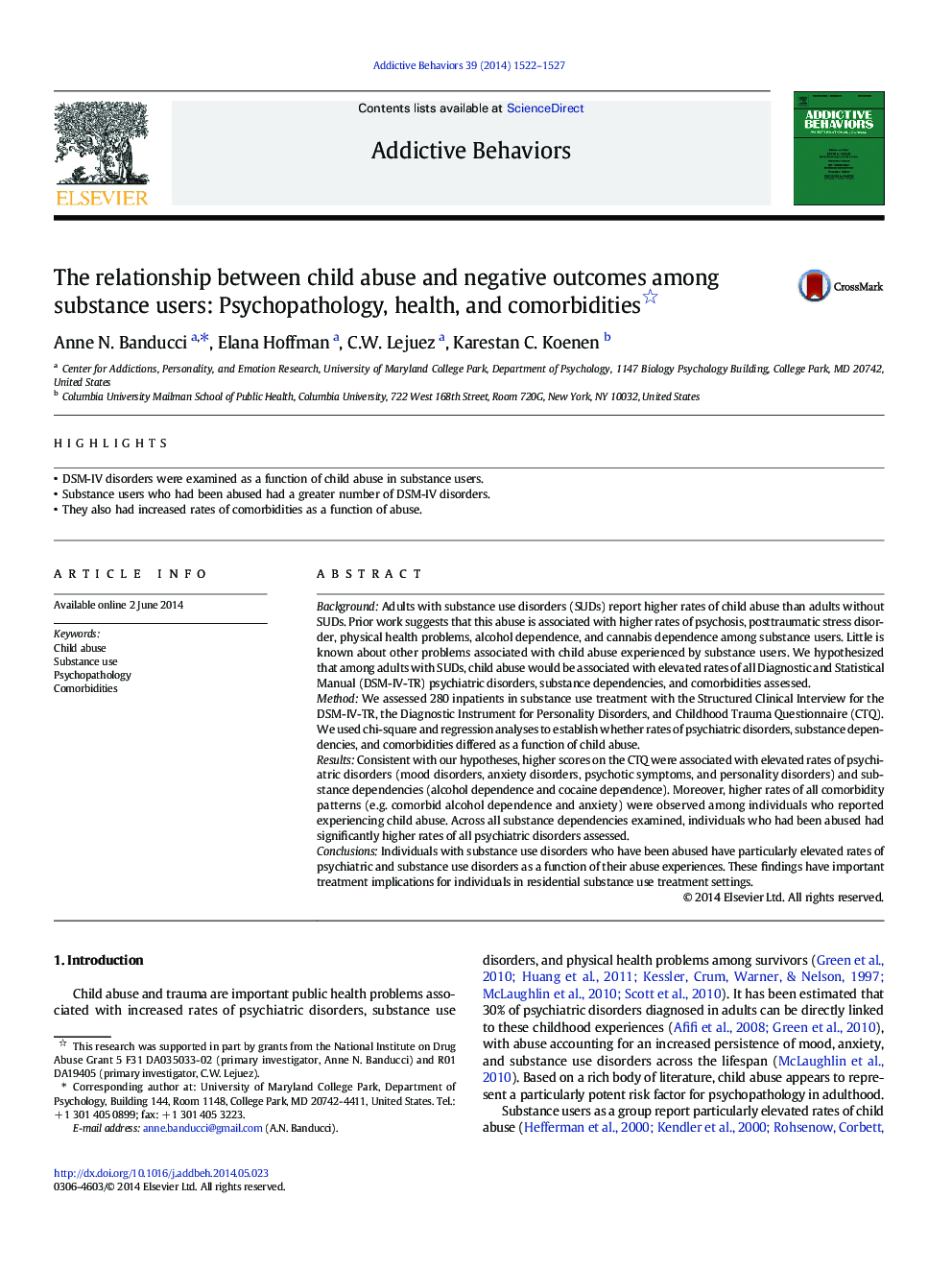| Article ID | Journal | Published Year | Pages | File Type |
|---|---|---|---|---|
| 898931 | Addictive Behaviors | 2014 | 6 Pages |
•DSM-IV disorders were examined as a function of child abuse in substance users.•Substance users who had been abused had a greater number of DSM-IV disorders.•They also had increased rates of comorbidities as a function of abuse.
BackgroundAdults with substance use disorders (SUDs) report higher rates of child abuse than adults without SUDs. Prior work suggests that this abuse is associated with higher rates of psychosis, posttraumatic stress disorder, physical health problems, alcohol dependence, and cannabis dependence among substance users. Little is known about other problems associated with child abuse experienced by substance users. We hypothesized that among adults with SUDs, child abuse would be associated with elevated rates of all Diagnostic and Statistical Manual (DSM-IV-TR) psychiatric disorders, substance dependencies, and comorbidities assessed.MethodWe assessed 280 inpatients in substance use treatment with the Structured Clinical Interview for the DSM-IV-TR, the Diagnostic Instrument for Personality Disorders, and Childhood Trauma Questionnaire (CTQ). We used chi-square and regression analyses to establish whether rates of psychiatric disorders, substance dependencies, and comorbidities differed as a function of child abuse.ResultsConsistent with our hypotheses, higher scores on the CTQ were associated with elevated rates of psychiatric disorders (mood disorders, anxiety disorders, psychotic symptoms, and personality disorders) and substance dependencies (alcohol dependence and cocaine dependence). Moreover, higher rates of all comorbidity patterns (e.g. comorbid alcohol dependence and anxiety) were observed among individuals who reported experiencing child abuse. Across all substance dependencies examined, individuals who had been abused had significantly higher rates of all psychiatric disorders assessed.ConclusionsIndividuals with substance use disorders who have been abused have particularly elevated rates of psychiatric and substance use disorders as a function of their abuse experiences. These findings have important treatment implications for individuals in residential substance use treatment settings.
